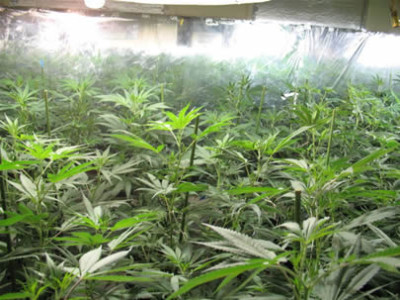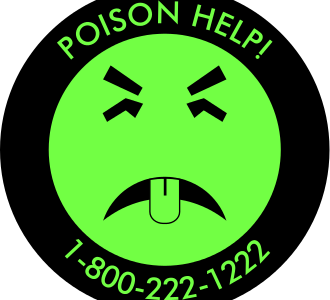Regulatory Policy
How Legalizing Marijuana Could Help Fight Climate Change
The link between indoor grow operations and energy data
Now that the two states that just legalized marijuana sent their football teams to the Superbowl this year, it’s clear that the stars are aligning for legalizing marijuana nationwide. Sure, legalizing marijuana makes fiscal, moral, and practical sense, but what about the benefits to the environment? Well, it turns out that even the fight against …
Continue reading “How Legalizing Marijuana Could Help Fight Climate Change”
CONTINUE READINGEmmett Center Files Amicus Brief in U.S. Supreme Court GHG Case on Behalf of South Coast Air District
UCLA’s Emmett Center filed an amicus curiae brief yesterday in Utility Air Regulatory Group (UARG) v. EPA, the U.S. Supreme Court case that will determine whether EPA’s greenhouse gas emissions rules under the Prevention of Significant Deterioration section of the Clean Air Act are valid. Arguing on behalf of the South Coast Air Quality …
CONTINUE READINGAn Ounce of Prevention
Can inherently safer technology save us from chemical accidents and terrorists?
As Benjamin Franklin famously said, “an ounce of prevention is worth a pound of cure.” Franklin’s comment, originally made in reference to home fire safety, is characteristically timeless. Today, many are looking to the principle of prevention as a way to reduce the incidence and severity of chemical plant disasters. The threat of chemical disaster …
Continue reading “An Ounce of Prevention”
CONTINUE READINGTen Energy Stories to Watch in 2014
What will shake the energy world this year?
In our energy law classes at Cal, we like to start the day by talking about Energy in the News. The media never fails us. Every day, there are multiple energy-related stories of significance touching on resource development, new technologies, policy shifts, jobs, regional politics, prices, international relations, or the environment. Once you start looking …
Continue reading “Ten Energy Stories to Watch in 2014”
CONTINUE READINGU.C. Davis’ “ESA at 40” Conference Now Available for Online Viewing
The federal Endangered Species Act turned 40 this past weekend. On December 28, 1973, then-President Richard Nixon signed into law what has proven to be the nation’s most controversial environmental law. So it’s an especially appropriate time to alert Legal Planet readers that a major, recent conference on the ESA sponsored by the U.C. Davis …
Continue reading “U.C. Davis’ “ESA at 40” Conference Now Available for Online Viewing”
CONTINUE READINGThe Food Safety Paradox
As Tom McGarity documents in his recent book, Freedom to Harm, the American food safety system is in disarray. You’d think we’d all be wiped out by food poisoning. Yet, the rate of sickness caused by bad food seems to have remained constant since the mid-nineties. What’s going on? McGarity and others are right about the …
Continue reading “The Food Safety Paradox”
CONTINUE READINGCalifornia Headed for Record Drought: Will Critically-Needed Reforms Follow?
Confronting a Looming Environmental Disaster
The Sacramento Bee’s fine environmental reporter, Matt Weiser, yesterday reported on a looming, major drought facing California and its regional neighbors. The figures aren’t pretty. A persistent high-pressure front stretching over the Gulf of Alaska and most of the Northern Pacific has diverted the normal fall and winter storm track away from California and other …
Continue reading “California Headed for Record Drought: Will Critically-Needed Reforms Follow?”
CONTINUE READINGNew on Ecology Law Currents
Ecology Law Currents, ELQ’s online companion, features lively short-form commentary. Check out the latest, an analysis of California’s cap-and-trade program. Author Penni Takade argues that the program has two key weaknesses: The first weakness is the process of allocation for GHG allowances to regulated firms. Under California’s allocation process, cap and trade will exacerbate economic …
Continue reading “New on Ecology Law Currents”
CONTINUE READINGGoing for Broke at the Climate Casino
The new Nordhaus book is good as far as it goes. But its analysis is muddled in crucial respects.
I finally had a chance to read Nordhaus’s new book, The Climate Casino, on a long flight. There are some goods lessons in the book. The book makes the case for serious mitigation, even rhough Nordhaus takes a fairly optimistic view about adaptation. Nordhaus also tells us that “it would be relatively inexpensive to slow …
Continue reading “Going for Broke at the Climate Casino”
CONTINUE READINGWhy Pollution Regulations Aren’t Taxes
Opponents of environmental regulations love to call them hidden taxes. But constant repetition doesn’t make this idea true.
If you’ve seen a statement that regulations are hidden taxes, that’s not too surprising. Googling “regulation hidden taxes” produces over three million hits. But in fact, pollution regulations and taxes are completely different. The reason is simple. A tax removes value from the private sector. Environmental regulations simultaneously remove value from one part of …
Continue reading “Why Pollution Regulations Aren’t Taxes”
CONTINUE READING













